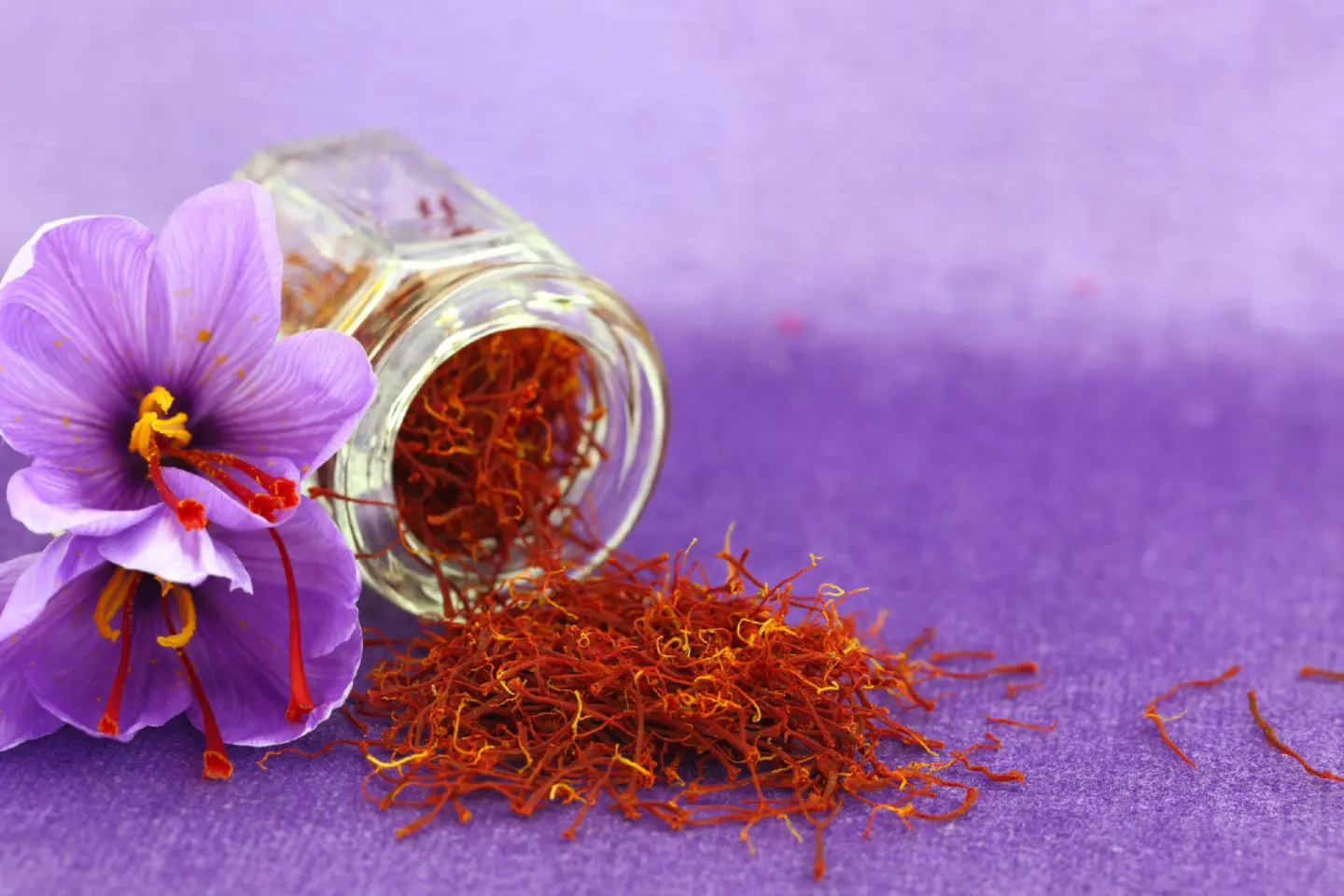Saffron, often referred to as the "sunshine spice", not only brings a rich golden hue and a grassy yet sweet flavor to a dish but also boasts a treasure trove of health benefits that have been revered for thousands of years. This precious spice, derived from the dried stigmas of the Crocus sativus flower, has long been the world's most costly spice by weight, valued both in culinary and medicinal capacities.

Impressively, saffron is packed with antioxidants, which are compounds that protect your cells against free radicals and oxidative stress. Crocin, crocetin, safranal, and kaempferol are some of the primary antioxidants in saffron. Studies suggest that these antioxidants may reduce inflammation, protect brain health, and offer other health advantages to those who include saffron in their diet.
One of the most celebrated health benefits of saffron is its potential to improve mood and treat depressive symptoms. Clinical trials have noted that consuming saffron can have similar effects to conventional treatments for mild to moderate depression. This could be due to the spice's serotonin modulating effects, sometimes giving it the moniker "the sunshine spice" not just for its color but for its mood-lifting benefits.
Saffron has also shown promise in weight management and appetite reduction. Research reveals that saffron may curb appetite by influencing the serotonin levels which regulate mood and hunger, thus leading to reduced snacking and an easier path to weight loss. Such findings make saffron a supplement of interest in the world of nutrition and dietetics, especially for those looking for natural weight loss aids.
Another intriguing aspect of saffron is its reported ability to improve heart health. Antioxidant-rich spices like saffron can reduce the risk of heart disease by improving blood cholesterol levels and blood vessel health. Saffron's antioxidant properties help lower blood cholesterol and prevent blood vessels from clogging, thereby promoting a healthy heart.
For those looking to enhance their cognitive abilities, saffron might be a golden ticket. Studies have suggested that it could enhance cognitive function, especially in older adults with age-related mental impairments. This possibly stems from saffron's antioxidant content, which may reduce the accumulation of amyloid-beta proteins, a hallmark of conditions like Alzheimer's disease.
Furthermore, saffron may benefit ocular health by preventing eye-related disorders. High concentrations of antioxidant carotenoids in saffron, particularly crocin, are linked to improved vision in patients with age-related macular degeneration (AMD) and can protect the cells in the eyes from damage.
For women, saffron may provide relief from menstrual symptoms. It has traditionally been used to alleviate cramps and premenstrual syndrome (PMS). Research supports this traditional use, showing that saffron can reduce PMS symptoms such as irritability, headaches, cravings, and pain.
Incorporating saffron into your diet can be both simple and delicious. It can be used in various dishes ranging from the iconic saffron-infused rice in paella to risottos, soups, and stews. It imparts a delicate aroma and a vibrant color to dishes that is unmatched by any other spice. It can also be brewed into a soothing tea or taken as a supplement.
To utilize saffron in cooking, a small amount is often enough, given its potency. The threads are typically soaked in hot water for about 10 to 30 minutes before being added to dishes. This not only releases the color but also the volatile oils and essences that give saffron its unique flavor. The infused liquid is then used in the preparation of the culinary dish, allowing the flavor to distribute evenly.
When purchasing saffron, it's crucial to buy from reputable sources to ensure its purity and to receive the full health benefits. Pure saffron should have a bright red color, a sweet smell, and a bitter taste. One should be cautious of fake saffron, which is often dyed and lacks the health-promoting properties of the real thing.
In conclusion, saffron is not just a spice that can elevate the taste and aesthetics of dishes from around the globe; it's a versatile ingredient with a storied history of medicinal use. The health benefits of saffron, from mood enhancement and cognitive support to heart health and relief from PMS, make it a valuable addition to a balanced diet. As with any supplement or dietary change, it's wise to consult with a healthcare professional before significantly incorporating saffron into your health regimen, but a sprinkle here and there in your culinary creations could impart both flavor and a dose of wellness to your life.
